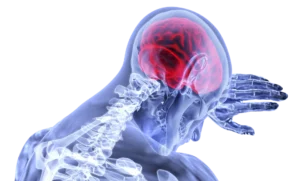Introduction
Brain injury refers to any damage or trauma that occurs to the brain, resulting in a disruption of its normal functioning. It can be caused by various factors such as accidents, falls, sports injuries, strokes, or tumors. Brain injuries can have a significant impact on an individual’s physical, cognitive, and emotional well-being.

Symptoms:
The symptoms of a brain injury can vary depending on the severity and location of the injury. Common symptoms include headaches, dizziness, nausea, confusion, memory problems, difficulty concentrating, mood swings, and changes in sleep patterns. In more severe cases, individuals may experience seizures, loss of consciousness, or paralysis.
Diagnosis:
Diagnosing a brain injury involves a comprehensive assessment by healthcare professionals. This may include physical examinations, neurological tests, imaging studies (such as CT scans or MRI), and evaluations of cognitive and behavioral functions. A thorough diagnosis helps determine the extent and nature of the injury, guiding appropriate treatment plans.
Treatment
Treatment for brain injuries typically involves a multidisciplinary approach, tailored to the individual’s specific needs. Immediate medical intervention may focus on stabilizing the patient and preventing further damage. Depending on the severity, treatment may include medication, surgery, rehabilitation therapies (such as physical, occupational, and speech therapy), and psychological support.
Life Changes
A brain injury can significantly impact a person’s life, affecting their physical abilities, cognitive functioning, emotional well-being, and overall quality of life. Adjusting to these changes can be challenging, both for the individual and their loved ones. It may require adapting to new routines, learning compensatory strategies for cognitive difficulties, and seeking emotional support to cope with the emotional and psychological effects of the injury.







